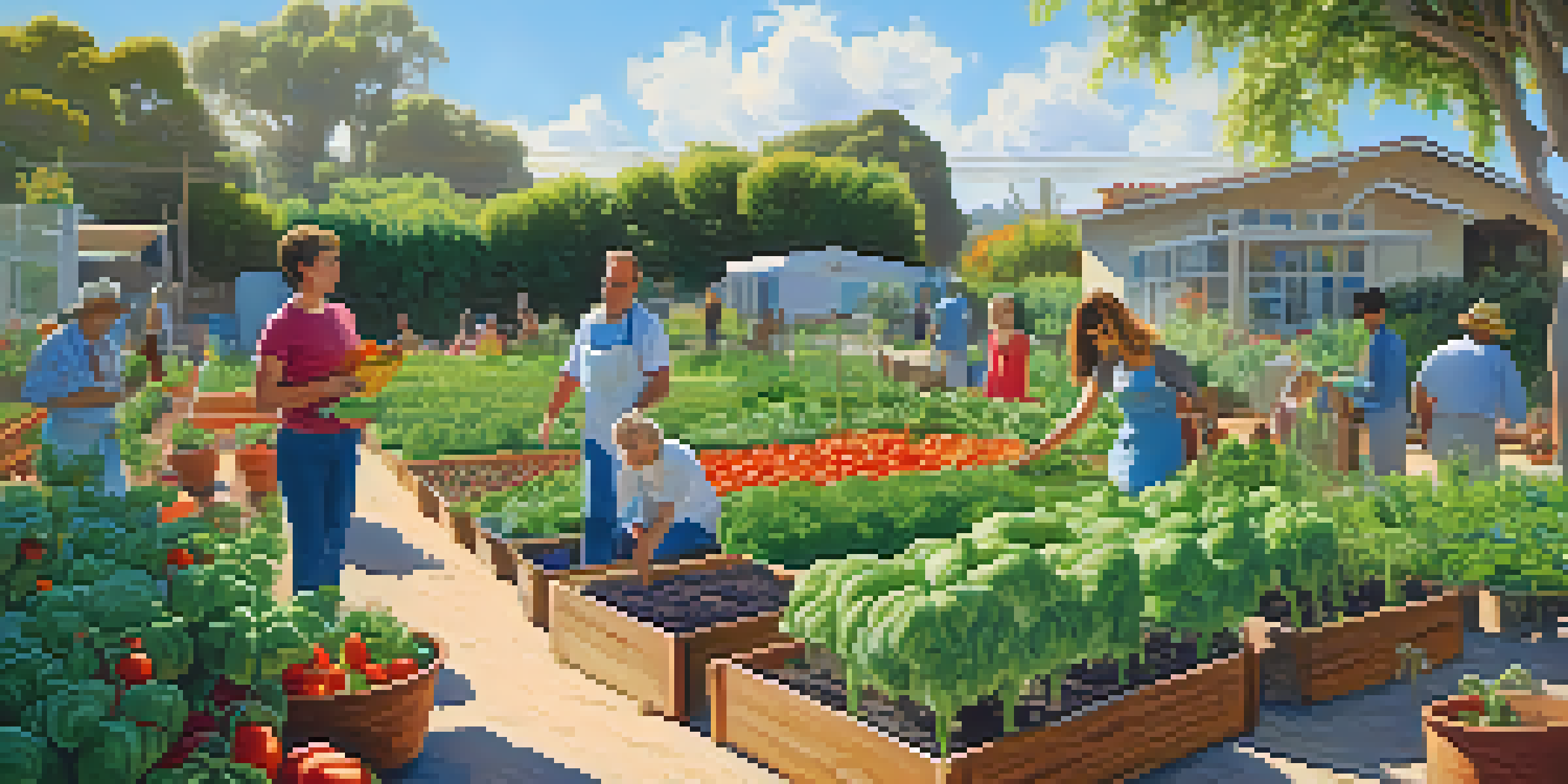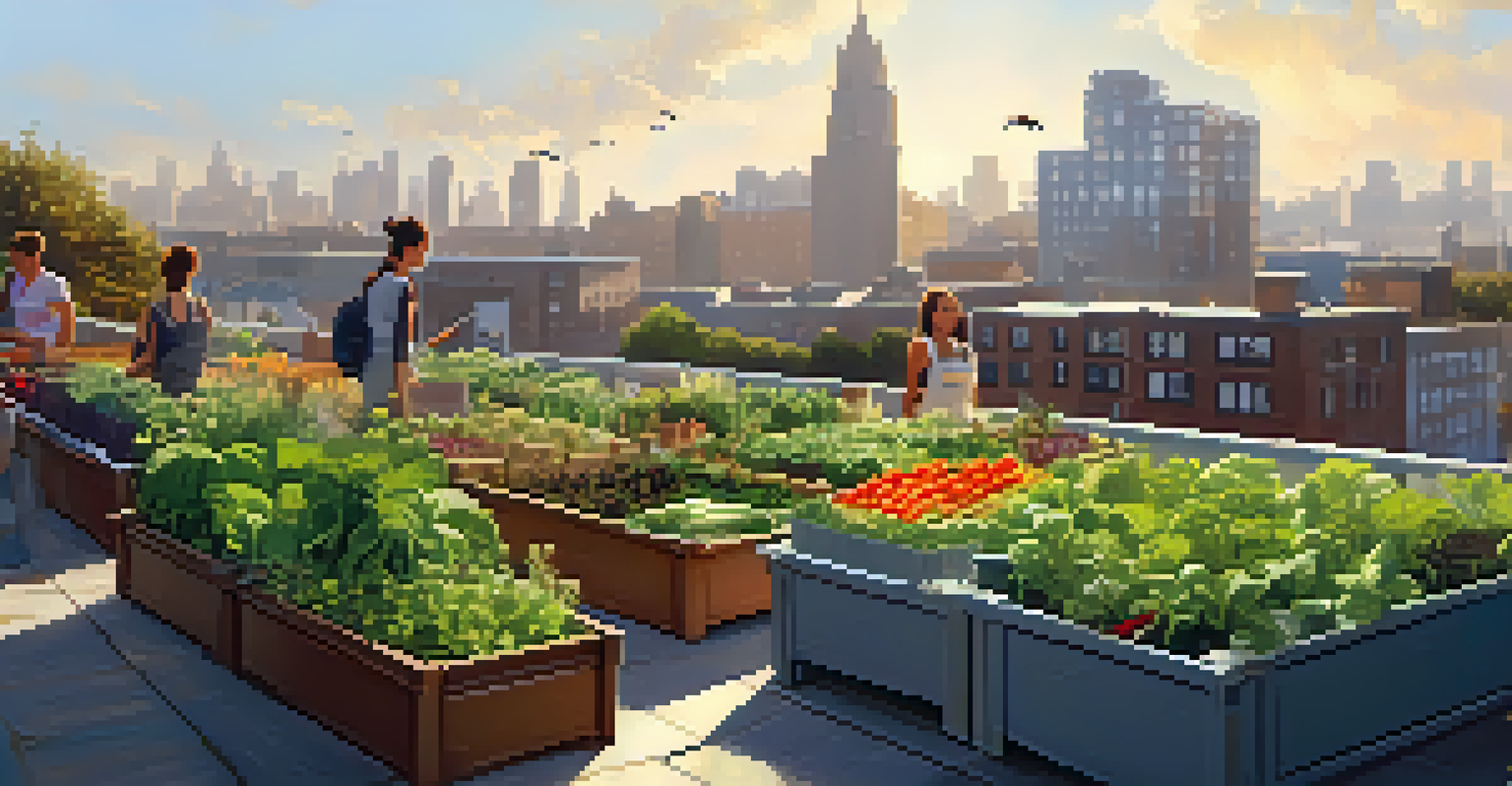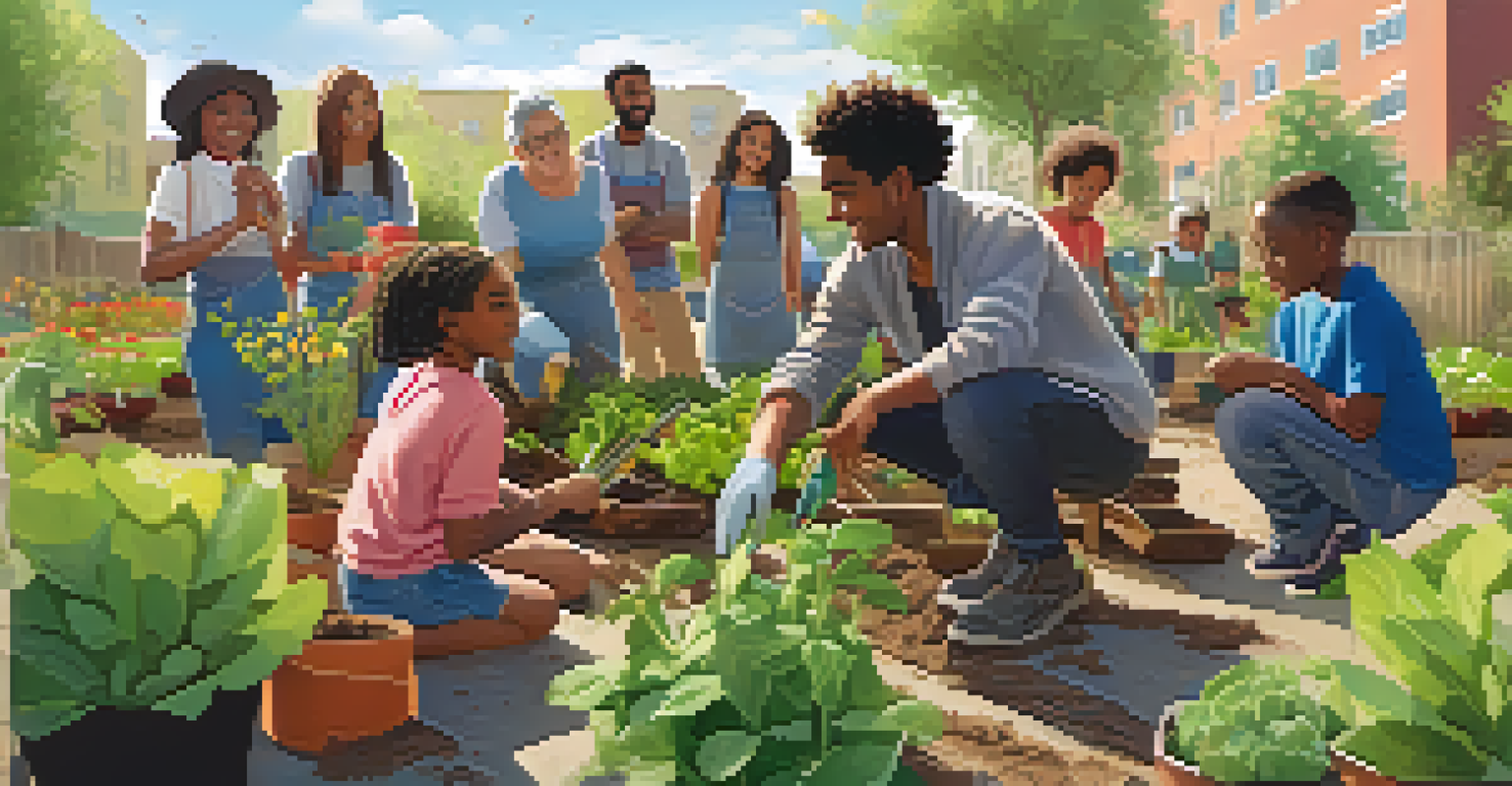Urban Farming: A Sustainable Solution for Malibu

Understanding Urban Farming and Its Benefits
Urban farming refers to growing food in city environments, utilizing vacant lots, rooftops, and community gardens. This practice not only provides fresh produce but also contributes to the local economy and promotes sustainability. By reducing the distance food travels from farm to table, urban farming minimizes carbon footprints, making it a win-win for both residents and the planet.
The future will be green, or not at all.
Malibu, known for its stunning beaches and upscale living, can greatly benefit from urban farming initiatives. With limited agricultural land, utilizing urban spaces for farming can enhance food security in the community. Imagine the joy of picking fresh tomatoes from a local garden instead of purchasing store-bought produce that has traveled thousands of miles.
Moreover, urban farms can foster community engagement. They create spaces where neighbors can come together, share knowledge, and work towards a common goal—growing food sustainably. This sense of community not only strengthens relationships but also promotes a healthier lifestyle.
Key Components of Urban Farming in Malibu
To establish successful urban farms in Malibu, several key components must be considered. First, identifying suitable locations is crucial. Vacant lots, public parks, and even schoolyards can be transformed into productive green spaces. Collaborating with local government and community organizations can facilitate access to these areas.

Next, soil health is a vital element for urban farming. Many urban sites may have contaminated soil, so testing and remediating it is essential for growing safe, healthy food. Utilizing raised beds or container gardening can also bypass soil issues, making urban farming more accessible to everyone.
Urban Farming Boosts Community Engagement
Urban farming initiatives foster community ties by encouraging residents to collaborate and learn together.
Lastly, education and resources play a critical role in promoting urban farming. Workshops on gardening techniques, sustainable practices, and even cooking classes can empower residents to participate actively. By equipping the community with knowledge, Malibu can cultivate a culture of sustainability and appreciation for local food.
The Environmental Impact of Urban Farming
One of the most significant advantages of urban farming is its positive impact on the environment. By growing food locally, urban farms contribute to biodiversity and enhance green spaces, which are crucial for wildlife. They also help manage stormwater runoff, reduce urban heat, and improve air quality—benefits that are especially important in coastal areas like Malibu.
Urban agriculture can help create a more sustainable food system while also fostering community and enhancing the local economy.
Additionally, urban farming promotes sustainable practices. Techniques such as composting, water conservation, and organic farming reduce reliance on chemical fertilizers and pesticides. Not only do these practices protect the environment, but they also produce healthier food for the community.
By integrating urban farming into Malibu's landscape, residents can actively participate in environmental stewardship. This collective effort fosters a deeper connection to the land and encourages eco-friendly habits that can lead to long-term sustainability.
Economic Advantages of Urban Farming
Urban farming can provide significant economic benefits to Malibu. By creating local food systems, it supports small-scale farmers and reduces dependence on large corporations. This not only keeps money within the community but also stimulates local job growth in agriculture, retail, and education sectors.
Furthermore, urban farms can attract tourism and promote local businesses. Farmers' markets and farm-to-table events draw visitors eager to experience Malibu's unique culinary offerings. This economic boost can help sustain the community and enhance its appeal as a destination.
Economic Growth Through Local Farms
By supporting local food systems, urban farming stimulates job growth and keeps money circulating within Malibu.
Incorporating urban farming into Malibu's economy can also lead to innovative partnerships. Collaborations between restaurants, grocery stores, and local farms can create a vibrant local food network, benefiting everyone involved. By investing in urban agriculture, Malibu can build a resilient and thriving economy.
Challenges Facing Urban Farming in Malibu
Despite its many benefits, urban farming in Malibu is not without challenges. Land availability and zoning regulations can pose significant barriers to establishing urban farms. Navigating the bureaucratic landscape can be daunting for those passionate about creating green spaces for food production.
Funding is another critical challenge. Many urban farming projects rely on grants, donations, or community support to get off the ground. Without sufficient financial backing, these initiatives may struggle to thrive, limiting their potential impact on the community.
Additionally, a lack of awareness and education about urban farming can hinder its growth. Many residents may not understand the benefits or may be unfamiliar with how to get involved. Building community interest and support is essential for overcoming these challenges and ensuring the success of urban farming in Malibu.
Community Engagement and Urban Farming
Community engagement is at the heart of successful urban farming initiatives. By involving residents in the planning and implementation of urban farms, Malibu can cultivate a sense of ownership and pride. This involvement encourages people to contribute their skills and ideas, leading to more innovative and effective farming practices.
Moreover, urban farms can serve as educational hubs, providing opportunities for hands-on learning. Schools and organizations can partner with local farms to create programs that teach children about gardening, nutrition, and sustainability. This not only benefits the students but also fosters a culture of environmental responsibility within the community.
Sustainability Benefits for the Environment
Urban farming contributes to environmental health by enhancing biodiversity and promoting sustainable agricultural practices.
Ultimately, community engagement helps to build resilience. When people come together to grow food, they create strong social networks that can support each other in times of need. This shared experience fosters a deeper connection to the land and encourages collaboration in other areas of community life.
The Future of Urban Farming in Malibu
As Malibu continues to grow, the future of urban farming looks promising. With increasing awareness of sustainability and the importance of local food systems, more residents are likely to embrace urban agriculture. This shift in mindset can lead to more innovative projects and collaborations that enhance the community's resilience.
Moreover, advancements in technology can play a pivotal role in the evolution of urban farming. Vertical farming, hydroponics, and aquaponics are just a few examples of how technology can maximize food production in limited spaces. By integrating these methods, Malibu can push the boundaries of traditional farming and set an example for other communities.

In conclusion, urban farming has the potential to transform Malibu into a greener, more sustainable community. By addressing challenges, engaging residents, and utilizing technology, Malibu can cultivate a future where fresh, local food is accessible to all, benefiting both the environment and the economy.